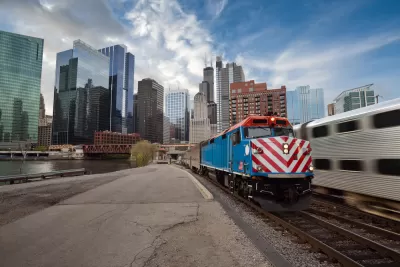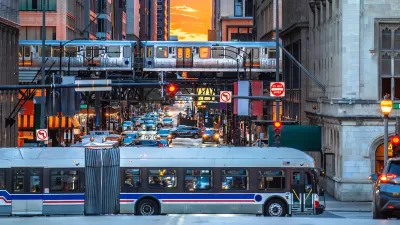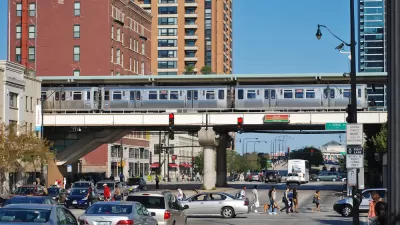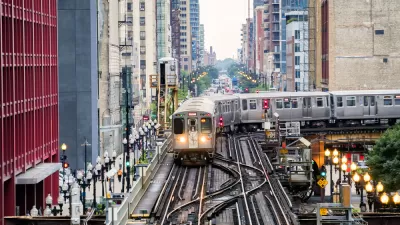Public transportation that serves regional areas makes sense, but the United States has been slow to pursue strategies and policies that foster these types of systems.

Yonah Freemark writes that regional transit systems are an important way to create effective and robust mobility networks. In places like Germany and France, commuter rail has been integrated into larger systems offering fast and frequent service that connects suburbs and downtowns.
"These regional rail services have transformed metropolitan travel in the places where they’ve been implemented because they make show-up-and-go, fast service available to whole regional populations, not just those who live in center cities, where frequent local rail and bus options are available," says Freemark.
But regional transportation is not characteristic of transit networks in the United States, and Freemark uses Chicago as a case study, where the Chicago Transit Authority operates buses and light rail and Metra runs commuter rail service. While the two agencies receive funding from the same sources, they have been set up as competitors.
And political control of the agencies is also part of the issue, notes Freemark. As a result, Chicago Mayor Lori Lightfoot, who controls the CTA, opposed a proposal to lower fares on Metra to make it more accessible to riders because of the potential decrease in CTA ridership that would result.
Freemark urges a rethinking of the goal of public transit. If it is about providing accessible, affordable mobility options, then developing regional transportation needs to be the focus. "Finding the political will to surmount these institutional constraints and develop regional rail should be a priority in virtually every metropolitan area," he adds.
FULL STORY: The perverse incentives produced by institutional division

Planetizen Federal Action Tracker
A weekly monitor of how Trump’s orders and actions are impacting planners and planning in America.

Congressman Proposes Bill to Rename DC Metro “Trump Train”
The Make Autorail Great Again Act would withhold federal funding to the system until the Washington Metropolitan Area Transit Authority (WMATA), rebrands as the Washington Metropolitan Authority for Greater Access (WMAGA).

The Simple Legislative Tool Transforming Vacant Downtowns
In California, Michigan and Georgia, an easy win is bringing dollars — and delight — back to city centers.

The States Losing Rural Delivery Rooms at an Alarming Pace
In some states, as few as 9% of rural hospitals still deliver babies. As a result, rising pre-term births, no adequate pre-term care and harrowing close calls are a growing reality.

The Small South Asian Republic Going all in on EVs
Thanks to one simple policy change less than five years ago, 65% of new cars in this Himalayan country are now electric.

DC Backpedals on Bike Lane Protection, Swaps Barriers for Paint
Citing aesthetic concerns, the city is removing the concrete barriers and flexposts that once separated Arizona Avenue cyclists from motor vehicles.
Urban Design for Planners 1: Software Tools
This six-course series explores essential urban design concepts using open source software and equips planners with the tools they need to participate fully in the urban design process.
Planning for Universal Design
Learn the tools for implementing Universal Design in planning regulations.
Smith Gee Studio
City of Charlotte
City of Camden Redevelopment Agency
City of Astoria
Transportation Research & Education Center (TREC) at Portland State University
US High Speed Rail Association
City of Camden Redevelopment Agency
Municipality of Princeton (NJ)





























